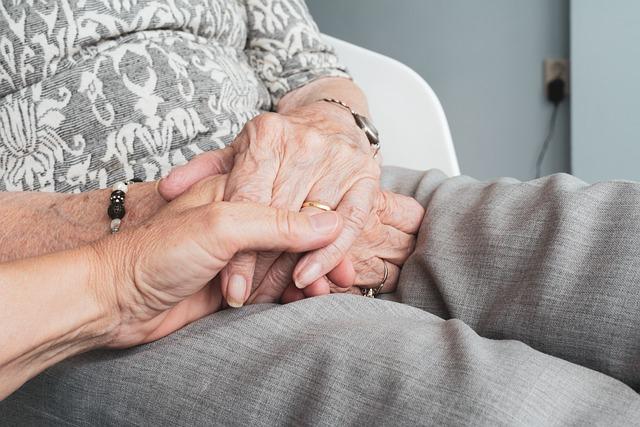In the quiet corners of our communities, where wisdom and experience reside, a shadow often goes unnoticed—a shadow cast by the troubling reality of senior abuse. It’s a heart-wrenching paradox that those who have spent their lives nurturing and guiding us may find themselves vulnerable, their voices drowned out by fear or silence. Yet, within each of us lies the power to be their advocates, to shine a light on this darkness and pave a path toward justice. This article serves as a compassionate guide for those who wish to stand up for the dignity and safety of our elders, offering step-by-step insights on how to report senior abuse effectively. Together, we can transform concern into action and ensure that every story is heard, every injustice addressed, and every senior protected.
Recognizing the Signs: Understanding the Subtle Indicators of Senior Abuse
Recognizing the subtle indicators of senior abuse is crucial for taking timely action. Often, these signs are not overt but manifest in delicate shifts in behavior and physical appearance. Emotional withdrawal and unexplained anxiety can be key indicators, as seniors may become unusually quiet or show signs of distress around certain individuals. Physical signs might include bruises or sores that don’t match the explanations given, or the senior may appear malnourished or neglected in their hygiene. Financial exploitation can be another form of abuse, which may be indicated by sudden changes in financial situations, like unexpected bank withdrawals or changes in wills and property titles.
- Behavioral Changes: Look for signs of depression, anxiety, or fearfulness, especially when specific individuals are present.
- Physical Indicators: Noticeable weight loss, untreated medical issues, or injuries that don’t match the given explanations.
- Financial Red Flags: Unexplained withdrawals, missing belongings, or sudden changes in legal documents.
- Environmental Neglect: Poor living conditions, such as a lack of heat, electricity, or running water, can also be a sign.
Being vigilant about these subtle signs is the first step in ensuring the safety and well-being of our senior community. By understanding these indicators, we empower ourselves to take action and protect those who might not be able to protect themselves.
Navigating the System: A Step-by-Step Guide to Reporting Senior Abuse
Understanding how to report senior abuse is crucial in safeguarding the dignity and rights of older adults. To start, gather all necessary information that supports the claim of abuse. This includes dates, times, and details of the incidents, as well as any witnesses who can corroborate the events. Next, contact the appropriate authorities, such as Adult Protective Services (APS) or local law enforcement. They are trained to handle these sensitive situations with care and discretion.
When making the report, ensure you provide a clear and concise account of the situation. Be prepared to answer follow-up questions and offer additional documentation if available. It’s important to remember that each case is unique, and the authorities will guide you through the specific steps required in your jurisdiction. Here are some key points to keep in mind:
- Confidentiality: Most agencies allow you to report anonymously if you prefer.
- Follow-up: Ask for a case number or contact person to check on the status of the investigation.
- Support: Seek emotional support for yourself and the victim throughout the process.

Empowering Voices: How to Support Seniors in Speaking Out
Empowering seniors to speak up about abuse begins with creating a safe and supportive environment where their voices are valued and heard. Active listening is crucial; encourage open conversations by showing empathy and patience. Often, seniors may feel isolated or fearful of repercussions, so it’s important to reassure them that their concerns will be taken seriously and handled with care.
- Educate yourself and others about the signs of senior abuse, which can be physical, emotional, financial, or neglectful.
- Build trust with seniors by being consistent and reliable in your interactions.
- Encourage community involvement by connecting them with local support groups or advocacy organizations.
In addition, understanding the resources available for reporting abuse is vital. Familiarize yourself with local authorities or helplines dedicated to elder abuse, and guide seniors through the process, offering your support every step of the way. By fostering an environment of trust and openness, we can help ensure that justice is not just a distant hope, but a tangible reality for those in need.

Ensuring Justice: Legal Pathways and Resources for Victims of Senior Abuse
In the face of senior abuse, understanding the legal pathways and resources available is crucial for ensuring justice. Victims and their advocates can explore several options to report and combat such abuse effectively. Legal aid organizations often provide invaluable assistance, offering guidance through the complex legal landscape and helping victims understand their rights. It’s essential to connect with local authorities who can initiate investigations and take necessary action. Many communities have specialized elder abuse units within their police departments, equipped with the expertise to handle these sensitive cases.
Additionally, there are numerous non-profit organizations dedicated to supporting seniors, providing not only legal assistance but also emotional and practical support. Consider reaching out to:
- Adult Protective Services (APS): A government agency that investigates reports of abuse and neglect.
- National Center on Elder Abuse (NCEA): Offers resources and information to aid in understanding and addressing elder abuse.
- Legal Services Corporation (LSC): Provides civil legal aid to low-income Americans, including seniors.
By leveraging these resources, victims and their families can take meaningful steps toward justice and healing, ensuring that the dignity and safety of our elders are upheld.


